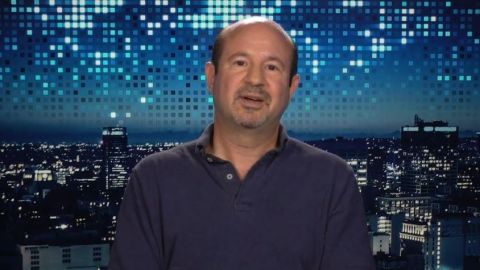Read Transcript EXPAND
CHRISTIANE AMANPOUR: How serious is this in the view of your government? And I don’t just mean politically for your government, but regionally, and what might it do given the tension between your two nations.
MALEEHA LODHI, PAKISTANI AMBASSADOR TO THE UNITED NATIONS: Christiane, let’s first get the facts straight. How was this crisis triggered? It was triggered by an illegal annexation by the Indian government off the State of Jammu and Kashmir, which is an internationally recognized dispute. In fact, where I sit at the United Nations, it is a dispute that has firmly on the U.N. Security Council agenda because there are series of U.N. Security Council resolutions that have called on India to allow the people of Jammu and Kashmir to freely determine their destiny through a (INAUDIBLE). So, the crisis is triggered by an illegal and an illegitimate action by India. And let’s just get the rest of the facts straight. The facts are that there is a blanket curfew in occupied Jammu and Kashmir. People there are locked up, it’s called a lockdown, which has entered its 4th day. But actually, this has been a prolonged lockdown. These people have been deprived of their liberty for 70 years or more. Now, they’re going to be deprived of their identity because action by the Indian government. What does it actually do? What it does is to also allow the Indian government to bring about demographic changes in Jammu and Kashmir. And therefore, to really threaten the identity of the Kashmiri people. As far as my government is concerned and my prime minister and my country is concerned, we reject this move, we heard what Prime Minister Modi said just a few hours ago, and it was dishonest, deceitful and disingenuous justification of their action which has no basis in law and it certainly flouts in flagrant violation Security Council resolution.
AMANPOUR: OK. So, Ambassador, let me ask you then —
LODHI: And there is no —
AMANPOUR: Let me ask you because those are very, very, you know, tough words that you’re using. You are the U.N. ambassador. You just reminded us all how this is enshrined in international law given the dispute that should be resolved according to the international community. So, what is the United Nations and the Security Council going to do about this? Are they taking it up?
LODHI: Well, I have been in meetings with top U.N. officials and I have reminded them of their responsibility. Pakistan is going to go to the Security Council. It is going to remind the Security Council and its members, indeed, all of the United Nations, of its responsibility. And what is that responsibility? That responsibility is to ensure. And let me cite, Christiane, for your viewers, an important resolution. It’s called Resolution 38 of the Security Council. And the paragraph 2 of that resolution says, “A country does not have the right to materially change the situation in Jammu and Kashmir,”
About This Episode EXPAND
Michael Mann tells Christiane Amanpour why we need to rethink what we eat and how we produce it. Maleeha Lodhi joins the program to explain tensions between Pakistan and India. Geena Davis and Tom Donahue sit down with Hari Sreenivasan to discuss their new film “This Changes Everything,” which tackles the need for more female representation in media.
LEARN MORE


